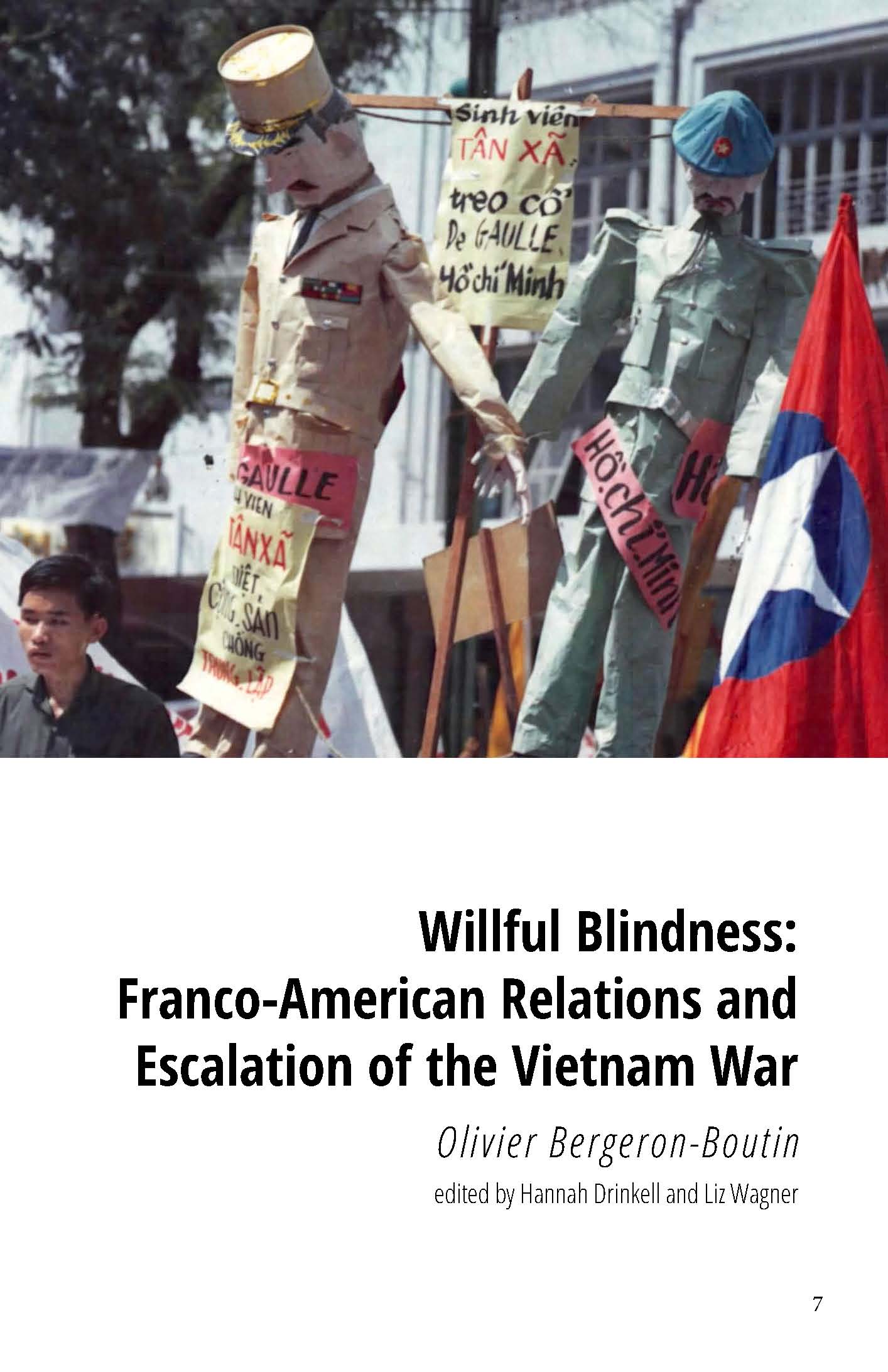Willful Blindness: Franco-American Relations and the Escalation of the Vietnam War
DOI:
https://doi.org/10.26443/firr.v9i1.5Abstract
The long and stable Franco-American diplomatic rapport was undermined throughout the American escalation of the Vietnam War. This paper specifically examines French President Charles de Gaulle’s increasing discontent at his ally’s involvement in Southeast Asia and analyzes the decisions of successive American presidents to ignore him. Beginning in 1961, with the inauguration of American President John F. Kennedy, the paper proceeds chronologically to 1964, by which point transatlantic relations had worsened considerably as a result of de Gaulle’s growing confrontation of the Indochina question. Using archival diplomatic documents from both countries, this paper seeks to explain why the United States government refused to comply with De Gaulle’s requests. This papers makes two main conclusions: American policy makers were willfully blind to their ally’s suggestions and the French proposal for the neutralization of Vietnam was not realistic. These findings are supported by various policy decisions made leading up to the war, relying heavily on primary sources to demonstrate the failings of both the French proposal and the American willingness to consider the perspective of a crucial ally.
Downloads

Downloads
Published
Issue
Section
License
Copyright (c) 2019 Olivier Bergeron-Boutin

This work is licensed under a Creative Commons Attribution-NonCommercial-NoDerivatives 4.0 International License.

